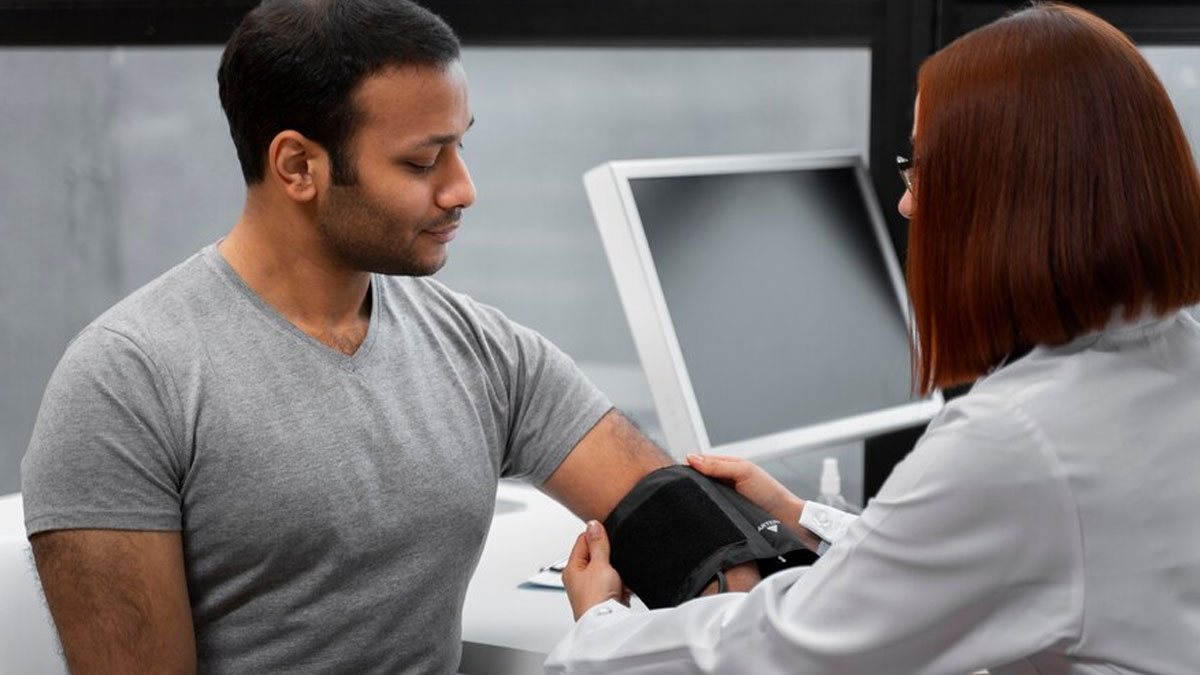
A new report by the Indian Council of Medical Research (ICMR) suggests that nearly 30% of Indians between the ages of 18 and 54 have never had their blood pressure checked.
The study findings were recently published in the International Journal of Public Health (IJPH) and the ICMR-National Centre for Disease Informatics and Research (ICMR-NCDIR).
Table of Content:-
As per the research, the southern part of the country has the highest average rate (76%) of people who measured their blood pressure at least once in their lifetime. In northern India, 70% said that they got their blood pressure measured at one time or another.
The good news is that the majority of people have had their blood pressure measured. The concerning aspect of the report is that many still have never checked their blood pressure, which is a leading risk factor for heart disease.
The OnlyMyHealth team spoke with Dr Ajay Shah, Managing Director of Neuberg Ajay Shah Laboratory, to understand the risk of never getting a blood pressure measurement.
Also Read: Protein-Rich Foods That Help Reduce Your Risk Of High Blood Pressure or Hypertension
What Is High Blood Pressure?

Blood pressure, as the name suggests, is the pressure with which blood flows through the blood vessels. High blood pressure, therefore, is when the force of blood flowing through your blood vessels is consistently too high.
A healthy blood pressure reading falls below 120 millimetres of mercury (mmHg) systolic and 80 mmHg diastolic.
Your blood pressure is considered elevated when your readings range from 120 to 129 systolic and less than 80 mm Hg diastolic.
High blood pressure, or hypertension, is when your readings range from 130 to 139 systolic or 80 to 89 mm Hg diastolic. At this stage, the American Health Association (AHA) recommends consulting healthcare professionals, who may recommend lifestyle changes and may consider prescribing medications.
The Risk Of Not Getting Blood Pressure Checked Regularly

According to the World Health Organization (WHO), more than 100 crore adults aged 30–79 years worldwide have hypertension, of which 42% are unaware they have the condition.
The AHA describes high blood pressure as a ‘silent killer’ as, in most cases, it does not show any obvious symptoms, leading to delayed diagnosis and late treatment.
Dr Shah says, “Regular blood pressure checks are vital for averting silent threats.”
According to him, unchecked hypertension can damage arteries, escalating cardiovascular risks like heart attacks, strokes, and heart failure, and also lead to renal impairment, silently affecting kidney function.
Unmonitored blood pressure may also affect vision and increase the risk of cognitive decline and dementia.
Also Read: Can Pain Cause Your Blood Pressure Levels To Rise? Expert Answers
How Often Should You Get Your Blood Pressure Measured?

Dr Shah recommends performing blood pressure checks regularly.
“For most adults, screening at least once every two years is recommended. However, those with hypertension risk factors or pre-existing conditions may require more frequent monitoring, possibly annually or even more frequently,” he says.
He further notes that age, family history, lifestyle choices, and underlying health conditions all influence the optimal frequency.
“Regular checks enable early detection of abnormalities, facilitate timely interventions, and prevent complications. Consulting with a healthcare provider helps establish personalised monitoring schedules, ensuring proactive management of blood pressure and overall health,” he concludes.
Also watch this video
Read Next
Can A Fatty Liver Disease Increase Your Risk Of Heart Disease? Read What An Expert Has To Say
How we keep this article up to date:
We work with experts and keep a close eye on the latest in health and wellness. Whenever there is a new research or helpful information, we update our articles with accurate and useful advice.
Current Version